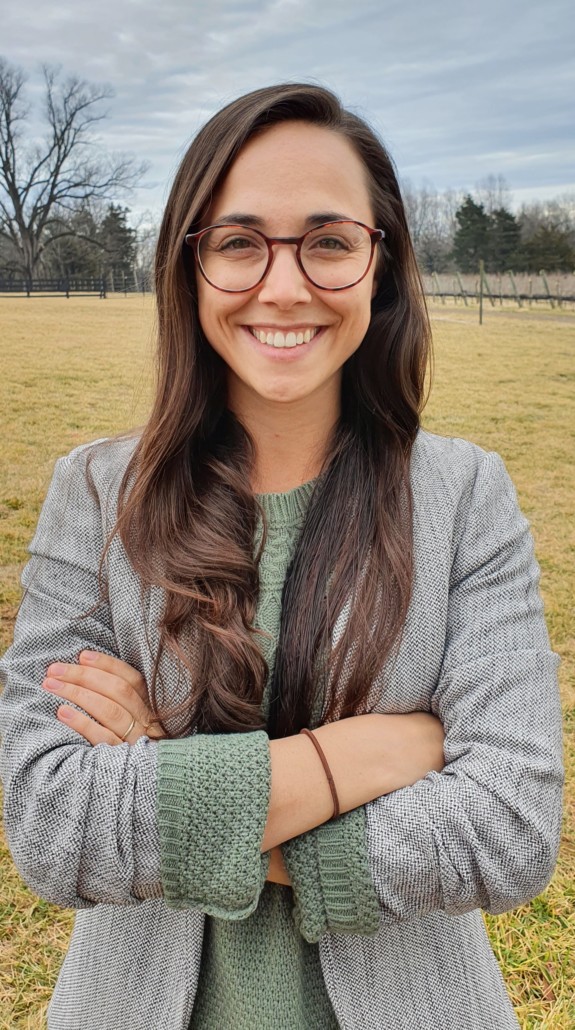The ASN Science Policy Fellowship is offered to advanced graduate students, early professionals, postdoctoral trainees, or medical interns, residents, or fellows. The intent of the Fellowship is to allow for an expanded understanding of current nutrition policy issues and initiatives. The Fellowship provides recipients with the opportunity to gain an enhanced perspective on public policy issues related to nutrition and facilitates the acquisition of skills and tools necessary to become well-informed advocates for nutrition research and policy.
Heather E. Schier is one of two current fellows. Schier is a Graduate Research Associate in the Interdisciplinary Ph.D. Program in Nutrition at The Ohio State University. She has been a member of ASN since 2020.

ASN: How did you first get involved in nutrition science and research? What led you to be interested in nutrition policy?
Schier: While serving for a year with AmeriCorps NCCC, I became increasingly aware of social injustices, particularly related to food access. It was clear to make a sustainable impact, systemic changes at the policy level were needed. Ultimately, I recognized my skills and passions could be exercised in a nutrition science research and advocacy setting, where I could contribute meaningful work to inform policy change and advocate for equitable health outcomes.
Tell us about your current position and the research activities in which you are involved.
I am a Graduate Research Associate in Dr. Gunther’s Community Nutrition Research Lab at The Ohio State University and a first-year doctoral student in the Ohio State Interdisciplinary Ph.D. Program in Nutrition. Our research lab explores various issues related to health disparities, particularly related to childhood obesity prevention and food insecurity. I currently lead a clinic-community collaboration with the Grant Medical Center in Columbus, OH where community-based participatory research methods are employed to characterize the unique disease management challenges food insecure adults with diabetes experience. This work will inform the development and implementation of a targeted food and nutrition education program paired with a food Rx through the Grant Medical Center’s on-site food pantry. We aim to measure the feasibility and effectiveness of this clinic-community food and nutrition education intervention.
What do you feel are the biggest challenges facing nutrition researchers today?
A lack of representation by minority groups in the field. We greatly hinder our collective potential to progress and serve the public with limited perspectives. I hope the field can increase accessibility and attract diverse voices across races, ethnicities, sexual orientation, and gender.
Additionally, as a field we continue to bear the burden of dispelling myths and misconceptions that infiltrate our policies and public perspectives. In some instances, this leads to unjustly stigmatizing certain behaviors and hindering uptake of other healthy behaviors. Increasing clear health and nutrition messages to the public is essential to shifting unhealthy attitudes and stigmas.
What influenced your decision to apply to the ASN Science Policy Fellowship program? How do you see yourself benefitting from this position?
With the affectionate nudge from my advisor, I had the confidence to apply for the fellowship. Advocacy has been a common thread throughout my young adult life and this fellowship seemed like the perfect fit for my education and career aspirations. In academic settings, we are trained in formal research communications, but learning to communicate through alternative mediums is another art and critical to addressing nutrition policy issues. Additionally, observing policy council meetings and review processes, and networking with accomplished figures within the various organizations will increase my understanding of contemporary nutrition policy issues and open my eyes to future opportunities for advocacy and action.
What aspects of ASN membership have you found most useful professionally?
The ASN Nutrition monthly newsletter highlights webinars, virtual talks, and other wonderful resources. I highly recommend students (at any level) interested in building a career in nutrition science consider joining ASN and taking advantage of these resources. The webinars and conversations open your eyes to what work is taking place, areas for advancement and professional development opportunities.
Is there anything else you’d like to tell ASN members, especially students?
You are capable of more than you think – do not forget to advocate for yourself. Nutrition science is a vast and relatively young field, with so many unanswered questions. I encourage ASN student members to get involved with research and to think about the policy implications of their research. Finally, stay actively engaged in the nutrition policy conversations facilitated by ASN and beyond!




